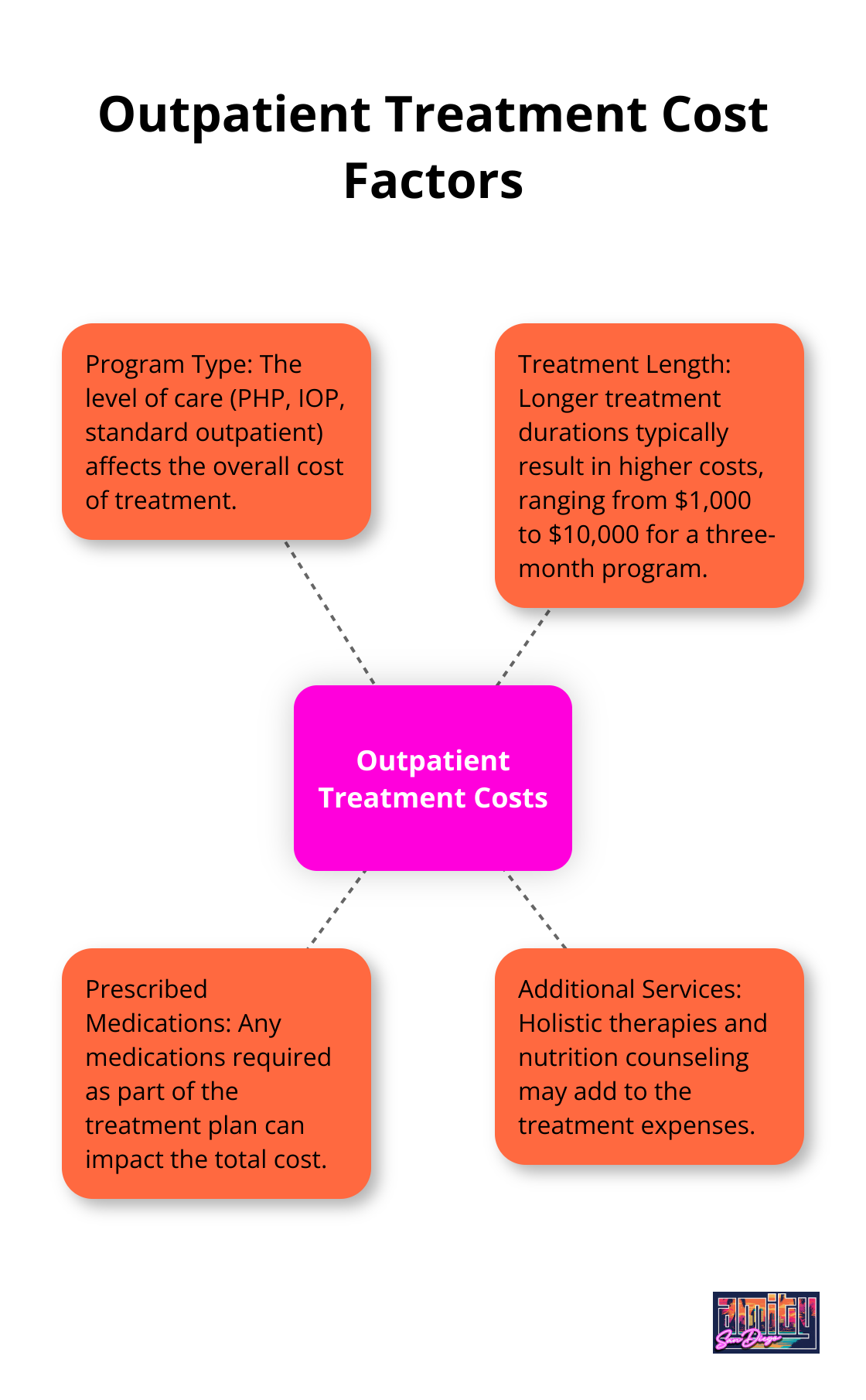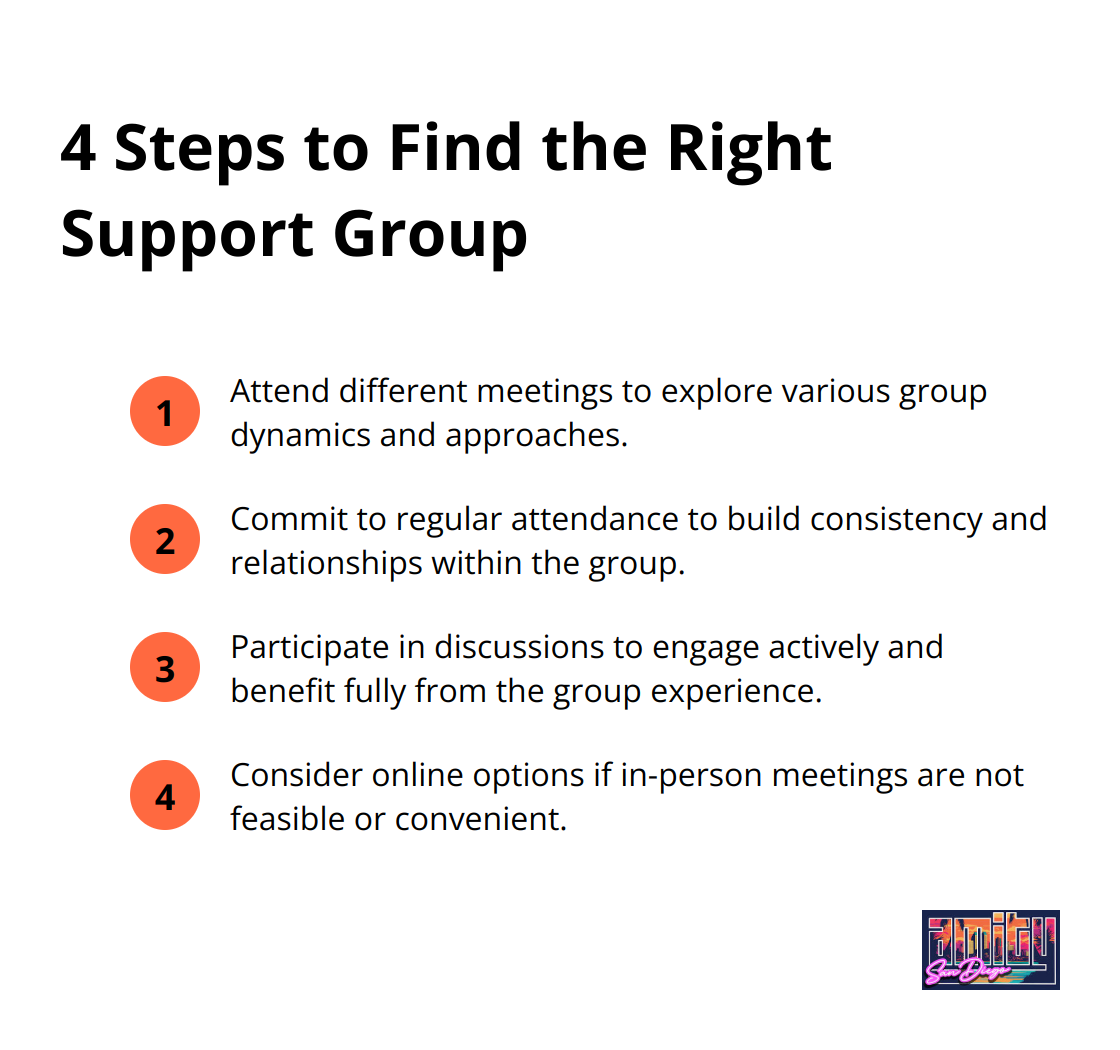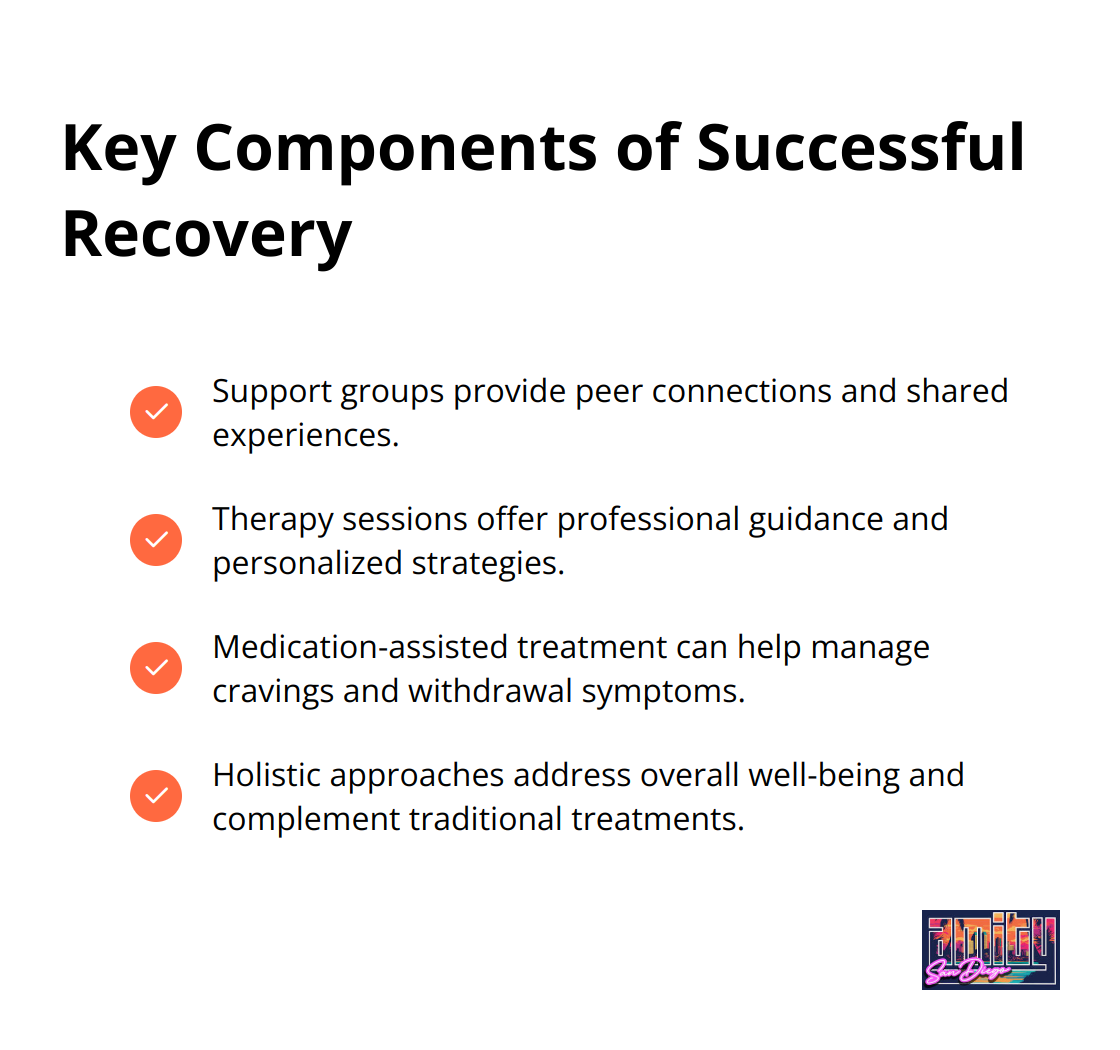At Amity San Diego, we understand that seeking help for addiction can be overwhelming. The journey to recovery starts with accessing the right resources and support.
This guide will help you navigate the maze of addiction resources available, from treatment options to financial considerations and building a strong support network.
Let’s explore the vital tools and information you need to support your healing process.
What Treatment is Right for You?
Understanding Levels of Care
At Amity San Diego, we offer a range of outpatient services to meet your unique needs. Our focus includes Partial Hospitalization Programs (PHP) and Intensive Outpatient Programs (IOP). PHP provides structured treatment during the day, allowing you to return home in the evenings. IOP offers a step-down option with fewer weekly hours, ideal for those transitioning back to work or school.
One study found that outpatient care had a better detoxification completion rate than inpatient care. This flexibility allows you to receive high-quality care while maintaining your daily responsibilities.
Assessing Your Personal Needs
To determine the right level of care, you must consider several factors:
- Severity of addiction
- Presence of co-occurring mental health issues
- Ability to maintain a stable living environment
- Work or family obligations
Our team at Amity San Diego conducts thorough assessments to help you navigate these questions and create a personalized treatment plan.
Evidence-Based Therapies
Effective treatment combines proven methods with innovative approaches. Cognitive Behavioral Therapy (CBT) and Dialectical Behavior Therapy (DBT) stand out as powerful tools for addressing addiction and mental health issues. Research shows that treatment is beneficial in reducing substance use and alleviating associated psychiatric, legal, job, family/social, and medical problems.
Holistic Approaches
We incorporate holistic therapies to support your overall well-being. These practices include:
- Yoga
- Meditation
- Nutrition counseling
A randomized trial compared mindfulness-based relapse prevention with relapse prevention for women offenders at a residential addiction treatment center. These complementary therapies play a vital role in stress reduction and relapse prevention.
Tailoring Your Treatment Plan
The most effective treatment plan aligns with your comfort level and commitment. At Amity San Diego, we work closely with you to find the right balance of therapies and support services. This collaborative approach ensures that your unique needs and recovery goals remain at the forefront of your treatment journey.
As you consider your options for addiction treatment San Diego, it’s essential to understand the financial aspects involved. Let’s explore how to navigate insurance coverage and manage the costs associated with your recovery journey.
How to Pay for Addiction Treatment
Insurance Coverage for Addiction Treatment
Most major insurance plans now cover addiction treatment. The Mental Health Parity and Addiction Equity Act (MHPAEA) is a federal law that generally prevents group health plans and health insurance issuers from imposing less favorable benefit limitations on mental health or substance use disorder (MH/SUD) benefits than on medical/surgical benefits. However, coverage varies between plans.
To understand your coverage:
- Contact your insurance provider directly
- Ask about specific coverage for outpatient services, therapy sessions, and medication-assisted treatment
- Inquire about any deductibles, copayments, or out-of-pocket maximums
Options Without Insurance
If you don’t have insurance, several options exist:
- Sliding scale fees: Many treatment centers offer flexible pricing based on your income and financial situation.
- Payment plans: Ask about spreading the cost of treatment over time.
- Grants and scholarships: Some organizations provide financial assistance for addiction treatment.
- State-funded programs: Your local Department of Health and Human Services can provide information on low-cost or free treatment options.
Understanding Treatment Costs
Treatment costs vary based on the level of care and duration of the program. According to the National Institute on Drug Abuse, outpatient treatment can range from $1,000 to $10,000 for a three-month program.
Factors affecting cost include:
- Type of program (PHP, IOP, standard outpatient)
- Length of treatment
- Medications prescribed
- Additional services (e.g., holistic therapies, nutrition counseling)

Investing in Your Future
The cost of treatment may seem high, but it’s important to consider the long-term benefits. Cost-benefit analyses are just one consideration in selecting programs and strategies for reducing substance abuse and its costs to society.
Moreover, successful treatment can lead to improved job performance, increased earning potential, and reduced healthcare costs over time.
Your health and well-being are priceless. Don’t let financial concerns prevent you from seeking the help you need. Many treatment centers (including addiction treatment San Diego) will work with you to find a solution that fits your budget and recovery needs.
Now that we’ve explored the financial aspects of addiction treatment, let’s turn our attention to another critical component of recovery: building a strong support network.
How to Build a Strong Support Network
Reconnect with Family and Friends
Recovery requires support from loved ones. Start with honest conversations about your journey and needs. Set clear boundaries and expectations. Family therapy sessions can help this process. National organizations such as the National Institute on Drug Abuse provide resources for families in recovery.
Join Support Groups
Support groups connect you with others who understand your struggles. Options include Alcoholics Anonymous (AA), Narcotics Anonymous (NA), and SMART Recovery (a science-based approach).
To find the right support group:

Find a Mentor or Sponsor
A mentor or sponsor provides personalized guidance and accountability. This relationship benefits any recovery context. When seeking a mentor:
- Look for someone with substantial clean time (at least one year)
- Ensure they actively work on their own recovery
- Choose someone whose story resonates with you
- Clarify your expectations and needs
Create a Sober Social Network
New, sober friendships support long-term recovery. Try to:
- Join sober meetup groups
- Participate in recovery-focused events
- Volunteer for causes you care about
- Take up new hobbies or classes
A strong support network is crucial for maintaining abstinence.
Utilize Professional Support
Professional support complements your personal network. Therapists, counselors, and recovery coaches offer specialized guidance. At Amity San Diego, our team provides ongoing support throughout your recovery journey.
Building a support network takes time and effort. The relationships you cultivate now can become the foundation of your new, sober life.
Final Thoughts
Recovery from addiction starts with a single step. We at Amity San Diego provide personalized, evidence-based care that addresses the whole person. Our team of experienced professionals will guide you through every stage of your recovery journey, from initial assessment to aftercare planning.
Addiction resources are diverse and plentiful, offering solutions that fit your unique needs and circumstances.

Help is available 24/7, whether you need immediate support or want to explore your options. Your journey to recovery can begin now, and a brighter, healthier future awaits you. You have the strength to overcome addiction and reclaim your life (with the right resources and support).

